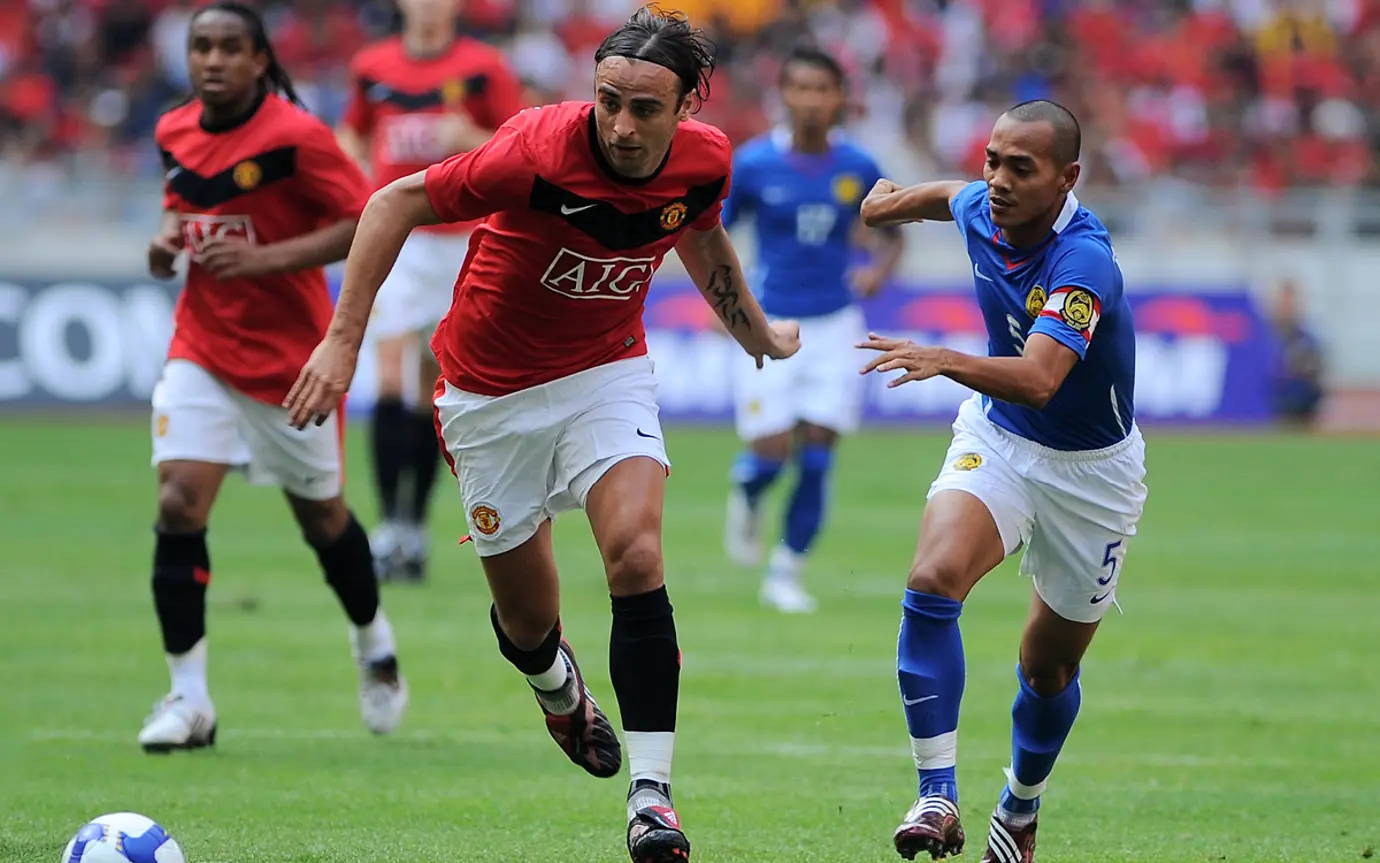Depending on your enthusiasm for the world’s greatest sport, you may or may not be aware that the domestic club football season is back.

While football supporters’ hopes and dreams may currently be sky high for the year ahead, it coincides with the Bank of England’s rather gloomy prediction that the UK economy will soon enter its longest recession since 2008-2009.
This prompted me to think about the football shirts of the late noughties and, in particular, the companies which sponsored the teams at the time. What ever happened to those businesses? How did they fare during and after the Great Financial Crisis?
Manchester United swept all aside in the 2008-09 season to win both the Premier League and the Champions League. The headline sponsor during this historical season? American International Group (AIG). In late 2008, AIG required a US federal government bailout for a hefty $180 billion, having sold credit default swaps on what became worthless collateralised debt obligations. By the end of the year, AIG had lost 98% of its value and was kicked out of the Dow Jones Industrial index.
In the same season, Newcastle United’s main sponsor was the building society-turned-bank, Northern Rock. With the subprime mortgage crisis in the US in full swing, Northern Rock’s ambitious growth plans sputtered and fizzled, and it was announced that the fourth largest bank in the UK (by share of lending) was in need of government assistance. A run on the bank ensued (the first in 150 years in the UK), and Northern Rock was eventually nationalised in February 2008. On the pitch, things were just as bad: Newcastle United was relegated from the top flight for the first time in 16 years. Ouch.
Under the management of Tony Pulis, Stoke City’s unconventional (and somewhat agricultural) brand of football proved very successful in the 2008-09 season. Their players sported Britannia Building Society across their chests as they physically dominated teams with long throw-ins and 7ft strikers. While Britannia didn’t completely collapse during the Great Financial Crisis, a report from the Bank of England in 2014 suggested that its merger with the Co-operative Bank in 2008-9 was the only thing that prevented it from becoming another Northern Rock (Britannia’s commercial loan book at the time was massive and pretty toxic).
There are plenty of other examples I could cite: West Ham and XL Holidays, Wigan and JJB Sports, Manchester City and Thomas Cook. All these businesses fell into deep trouble or even ceased to exist shortly after the 2008-09 season.
So, as the UK once again stares recession in the face, who of the current crop of sponsors might be fated to go the same way as the cursed cast of 2008-2009?
Last time, it was banks and building societies, but could it be betting companies this time round? Currently, 40% of the 20 premier league clubs’ main shirt sponsors are online betting or casino companies. But we’re not talking your well-known UK high street operators. Most of these sponsors are operators that are unregulated by the UK Gambling Commission, have their headquarters in the Philippines, and whose business practices could politely be described as ‘opaque’. If the shirt sponsor curse is truly alive and well, then companies like Fun88, sportsbet.io, dafabet and stake.com might all soon be in peril.
Away from the online casinos, there are other shirt sponsors where alarm bells might already be ringing. Aston Villa are currently sponsored by Cazoo. While the company claims to be busy "transforming the way people buy cars" (whatever that involves), its share price is down by around -85% in 2022. And on a one year view the share price of Manchester United’s headline sponsor, TeamViewer, is off 61%. Perhaps both are ones to watch if the Bank of England’s predictions come true.
Read more from The Brief.
This communication is provided for information purposes only. The information presented herein provides a general update on market conditions and is not intended and should not be construed as an offer, invitation, solicitation or recommendation to buy or sell any specific investment or participate in any investment (or other) strategy. The subject of the communication is not a regulated investment. Past performance is not an indication of future performance and the value of investments and the income derived from them may fluctuate and you may not receive back the amount you originally invest. Although this document has been prepared on the basis of information we believe to be reliable, LGT Wealth Management UK LLP gives no representation or warranty in relation to the accuracy or completeness of the information presented herein. The information presented herein does not provide sufficient information on which to make an informed investment decision. No liability is accepted whatsoever by LGT Wealth Management UK LLP, employees and associated companies for any direct or consequential loss arising from this document.
LGT Wealth Management UK LLP is authorised and regulated by the Financial Conduct Authority in the United Kingdom.